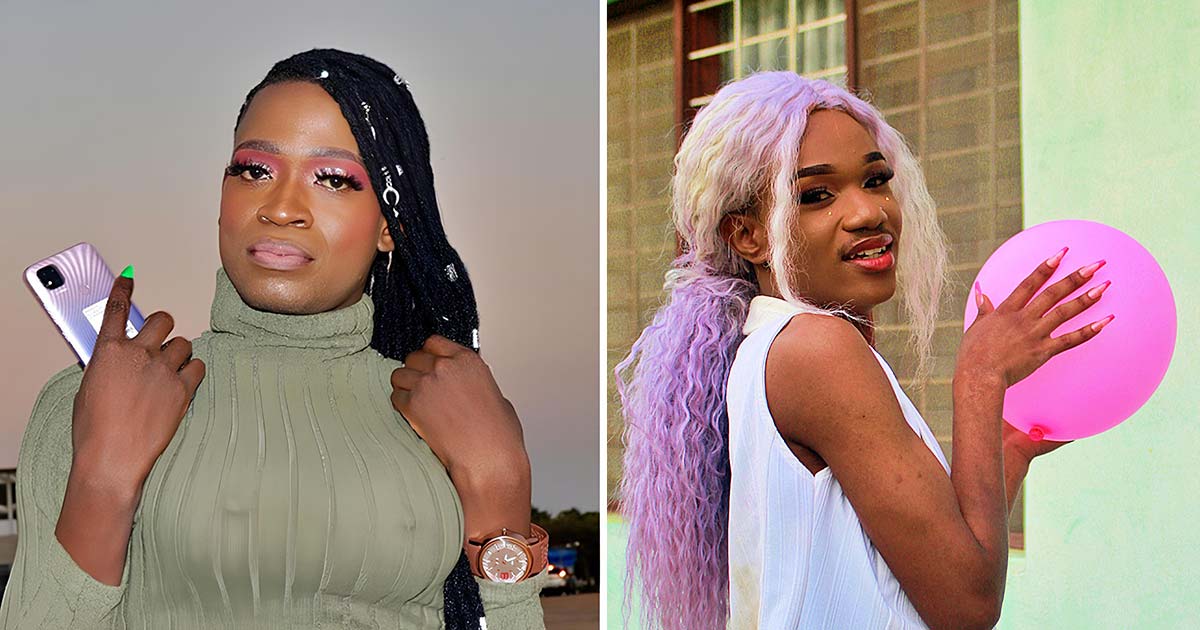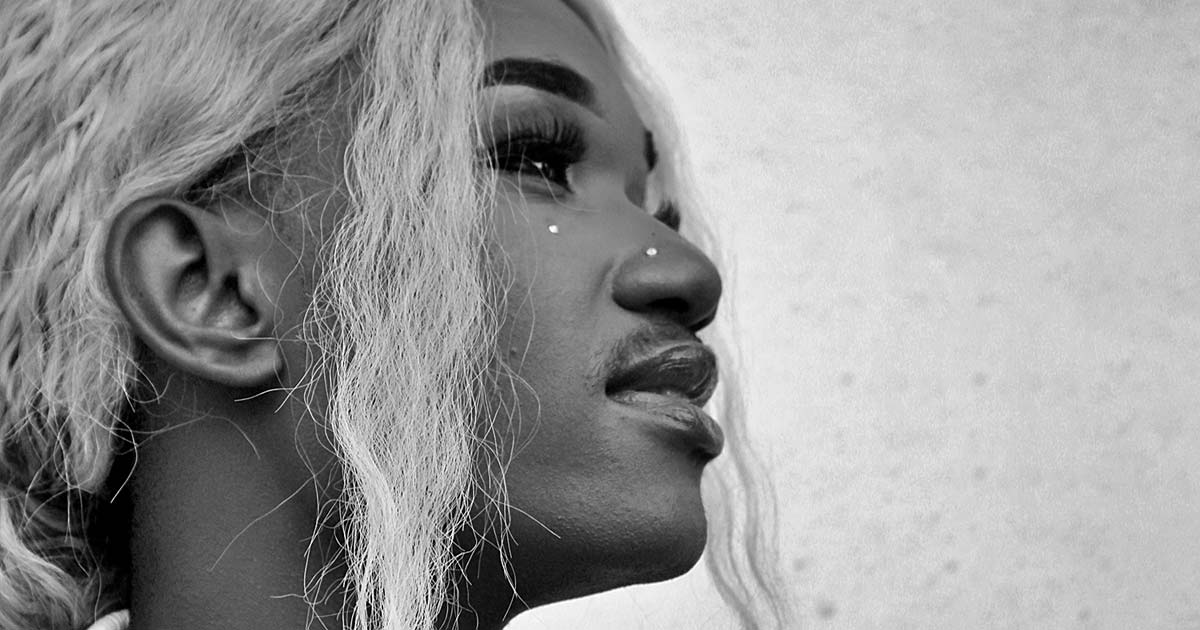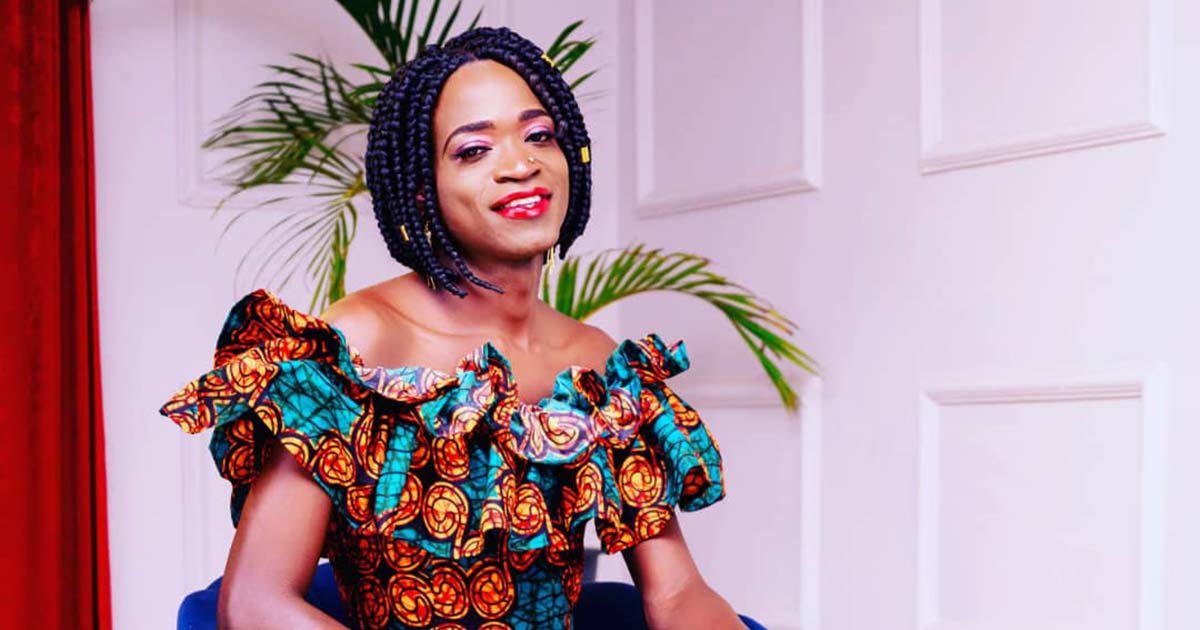Chrystal and Electra’s Journey of Resilience and Hope

Electra and Chrystal share their experiences of navigating life as transgender women in Malawi
Being a transgender woman in Malawi presents a unique set of challenges, including legal discrimination, social stigma, family rejection, and obstacles in education, healthcare, and employment.
Electra and Chrystal, two transgender women from Malawi, share their experiences of navigating life in a society that often marginalises them. Their stories not only shed light on the injustices they face but also reveal their resilience and determination to fight for a more inclusive future.
Legal and Social Stigma and Violence
LGBTIQ+ people in Malawi face several legal challenges, including the criminalisation of homosexuality and little protection from discrimination. Transgender individuals also cannot change their gender markers on identity documents, which further complicates their daily lives.
“Malawi’s homophobic laws leave us vulnerable to discrimination in employment, housing, and healthcare,” explains 24-year-old Chrystal, a health professional and activist from Blantyre.
Electra, a 29-year-old trans activist who lives in Lilongwe, echoes this sentiment, pointing out that the legal landscape effectively renders transgender individuals nonexistent and emboldens individuals to target and mistreat transgender people with impunity.
“Following recent court rulings on anti-LGBTIQ+ legislation, there’s been an increase in harassment, assault, and discrimination against transgender people,” she points out.
Both Chrystal and Electra have experienced and still face social stigma, and possibly worse. “The constant threat of violence and discrimination leads to real mental health challenges, including depression, anxiety, and suicidal ideation,” Chrystal says.
Navigating public spaces can be particularly worrisome. Chrystal always assesses the safety of her environment and stays connected with trusted friends or family. “I make sure to have a plan for how to leave quickly if I feel threatened,” she discloses.
Electra’s visibility due to her online advocacy means that she’s at a high risk of being targeted. “It is challenging to stay in one place for long, and relocating is difficult because people often don’t want to rent houses to me,” she explains. But she refuses to hide herself or her identity. “I receive threats and offensive messages regularly, but it doesn’t deter me from promoting understanding and acceptance.”

Chrystal was expelled from school for taking part in a Pride parade
Family Matters
Both Chrystal and Electra realised their transgender identities at a young age. Chrystal knew she was transgender at ten, while Electra felt disconnected from her body but didn’t know what to call it until she finished school.
“It was when I was in form 2 that I came across the word gay, but it didn’t fit. After school, I worked on myself and my identity and realised I was more comfortable identifying as transgender,” Electra explains.
Navigating school was not an easy task. Chrystal, for example, was expelled from high school because she attended a Pride parade. Electra’s strategy was to not stand out. “I always tried to conform in order to complete my education,” she says. Many of her friends, however, were expelled or had to drop out because of their gender identity.
Sadly, for Electra, home was also not the affirming environment it should have been. “When I first came out, my family was not accepting at all, and I had to leave the family home,” she recalls. She still faces discrimination from some family members and is at times excluded from gatherings because of her gender identity.
She admits that not being fully acknowledged by her family is difficult to accept. “It bothers me greatly… it breaks my heart. There are times when I am stressed and depressed about the uncertainty of my situation, and I’d like to talk to about it with them, but I can’t. I know they will ask why I can’t just stop ‘being gay’. It makes me sad.”
Chrystal’s family relationships are also complicated. “They eventually gave up trying to change me and now acknowledges me as their child, although not fully accepting my transgender identity,” she says. “I sometimes see families that accept my friends, and I envy the love, support and care that their family gives them. I wish that I could have that.”
Seeking Healthcare Can Be Harrowing
Access to welcoming healthcare is another major barrier for LGBTIQ+ people in Malawi. There are no health facilities in the country that provide transition-related medical care such as hormone therapy or gender affirmation surgery.
“I want to start transitioning,” Chrystal reveals. “Malawi won’t let me do that – there’s the lack of medication, and the law won’t let me change my gender on identification documents. I could even be imprisoned if I transition here in Malawi and the governments finds out.”
She usually resorts to private care for general health services to limit potentially stigmatising scenarios, but she acknowledges the struggles faced by her peers in the public health sector, including discrimination, exclusion and the constant fear of being outed.
Electra’s experience with healthcare echoes these realities. “Seeking healthcare can be an incredibly stressful experience. We encounter stares, slurs, and outright verbal abuse.” Limited access to essential supplies like lubricants and condoms further hinders efforts to promote sexual health and well-being among transgender women, she says.

Electra has built a support network that embraces her gender identity
Exclusion and Finding Community
Both women say that securing formal employment is nearly impossible for transgender women in Malawi. “I lost my teaching position due to my gender identity,” Chrystal recalls. Dating is another struggle. Chrystal describes it as difficult and often conducted undercover. “Trust is a significant issue, and my advocacy work has made it even more challenging to have a dating life in Malawi,” she says.
With so many difficulties and stresses weighing down on them, finding a sense of community has been crucial. Chrystal highlights the importance of local organisations like the Nyasa Rainbow Alliance and the Diversity Forum, which work to promote and protect LGBTIQ+ rights. “These organisations provide support and advocacy for the LGBTIQ+ community in Malawi,” she says.
Electra adds that creating a support system has been essential. “The community you grow up with may not accept your identity, so I have created my own chosen community that embraces my gender identity,” she explains.
Hope for a New Malawi
Chrystal and Electra both hope for a future where transgender individuals can live freely and safely in Malawi. Chrystal, however, has considered leaving the country.
“Ever since I was a young girl, I wanted to get married and raise a family. Malawi will not allow me to do that, not with its homophobic laws. That’s one thing that is limiting me in living a really fulfilling life,” she says. “If I had the opportunity to relocate to a place where I can be my true self, I would grab it with both hands.”
Despite the day-to-day challenges as a transgender woman, Electra still feels that her life is fulfilling. She especially finds great satisfaction in living openly as herself and being a hopeful role model to others.
“I receive a lot of messages from people who are hiding themselves because they are afraid,” she says. “The fact that I don’t have to hide my identity anymore is really good.” And when times are uncertain and dark, Electra looks to the little things. “I aways find comfort in food and friends especially when we watch movies,” she exclaims.
While discriminatory and inhuman laws in Malawi must undoubtedly come to an end, expanding the hearts and minds of communities is its own complex but necessary process.
Through their visibility and openness, Chrystal and Electra are helping to make that change every single day. Their choice is not without risks, but it speaks to a determined hope for a more equal and caring future.
Shassy is a black, pansexual, non-binary extraordinary individual who has dedicated their life to better the lives of queer Malawians so they can also feel free to express and find themselves. They are an artist, photographer, writer and overall find themselves living a unique life.
This article was made possible with the support of the Other Foundation. The views expressed herein do not necessarily represent those of the Other Foundation. www.theotherfoundation.org.
©2024 MambaOnline. This article is licensed under a Creative Commons Attribution-NoDerivatives 4.0 International License. You may republish this article, so long as you credit the authors and MambaOnline, and do not change the text. Please include a link back to the original article.
It was just a great experience telling my story.